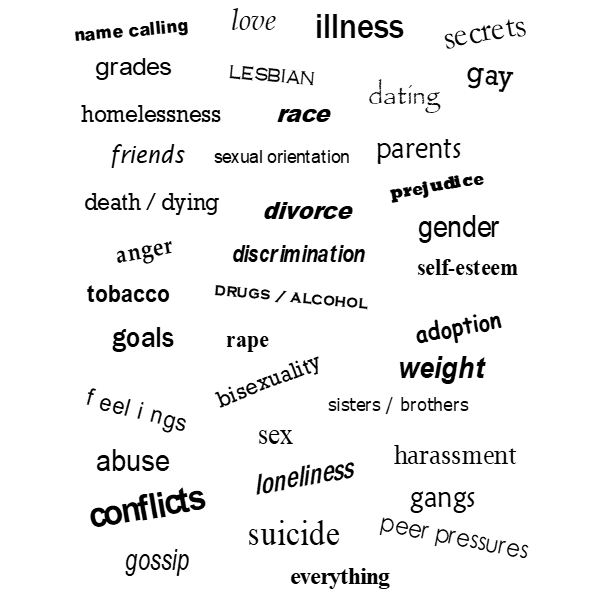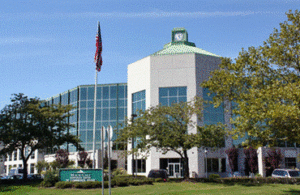What to Expect from Counseling

This is a safe place!
I’m Willing to Talk About:

People come to counseling for many reasons, some are in crisis, some seek to improve their lives or their marriages or other such skills. Some come because they suffer from some form of mental illness or addiction and are looking for relief. Others come because they’re looking for a secure and confidential place to talk out their problems. For whatever reason, it is important that you understand certain things about the counseling process.
-
-
- Counseling is not always an easy process. Many times difficult subjects need to be addressed. There may be times when it does not feel good to be in counseling. You should remember that you entered counseling for your long-term best interest. You came not because you wanted to avoid the issues, but because you needed to explore them. Tears are not uncommon in a counseling room. In the short-term counseling may be upsetting, but in the long-term you can expect to leave the process happier and healthier.
- You have the right to expect your counselor to adhere to high professional standards. The counseling profession is governed by a code of ethics that gives you certain rights. These include the right to have the code of ethics as well as applicable state and federal regulations freely and clearly discussed with you. Don’t hesitate to ask your counselor to explain your rights if you don’t fully understand them
- You and your counselor both understand that every person is unique. Your mental health counselor will customize your treatment to your particular needs. Counselors never “fix people.” Your counselor is a tool to help you achieve the goals you set. Oftentimes, the first part of the counseling process involves exploring your needs and helping you set your goals. Once those goals are set, they may need to be revised as new information is discovered in the counseling process. It may not be possible or wise to work on too many goals at the same time.
- Mental health counselors often refer to other professionals. They may refer you to a psychiatrist or to your family doctor for medication. They may refer you to a school counselor, university counseling center, or state employment center for career counseling. You might be referred to a psychologist for psychological testing, which may be beyond the scope of your counselor’s own practice. When this occurs, your mental health counselor will discuss with you the reason for the referral and what he or she hopes you will gain in seeing another mental health professional. Of course, you always have the right to refuse the referral. In such cases, it is the obligation of your counselor to inform you of the possible implications of such a refusal.
-
Coming to a counselor, admitting something may be wrong in your life and needs to be improved, is a courageous act. Perhaps you’re seeking to be a better parent, a better spouse, or a better employee. Others are coming to help them cope with the everyday crises of life. Others are seeking to learn to manage life’s stresses more effectively. For whatever reason you have come, you have sought the services of a professional counselor. He or she will warmly welcome you, attempt to make you comfortable, and bring his or her professional skills to you. He or she will do this as you build new skills, redress old hurts, seek recovery from mental illness or addictions, enhance your marriage, improve your parenting, and generally seek to become a happier and better person.
Ask a Question
Book an Appointment
Services
- Personal, Couples, Marriage and Family Counseling
- Counseling for young adults ages 16 and up.
- Stress Management
- Depression and Anxiety
- Anger Management
- Separation and Divorce Counseling
- Career Coaching and Testing
- Corporate, Job and Workplace Counseling
- Counseling for Codependency Issues
- Grief Counseling
- Counseling due to Medical Issues and Chronic Illness
- Intimacy Issues
- Counseling for Women’s and Men’s Issues
- Learning Disabilities and ADD (adult and child) Counseling
- Communication Skills
- Post Traumatic Stress Disorder
- Counseling for Congitive Behavioral Therapy (CBT) and other approaches
Contact
1-800-300-4079
bev@bbcscounseling.com
BBCS Counseling
BBCS Counseling Services is located in New Jersey.
BBCS Participates in Most Insurance Plans for Personal Counseling

Cranford Office
Cranford Businesss Park
20 Commerce Drive, Suite 135
Union County
Cranford, NJ 07016

Freehold Office
Avalon Executive Centre
4400 Route 9 South, Suite 1000
Monmouth County
Freehold, NJ 07728
